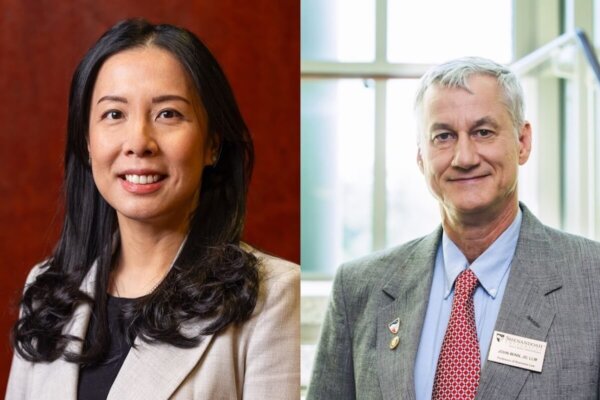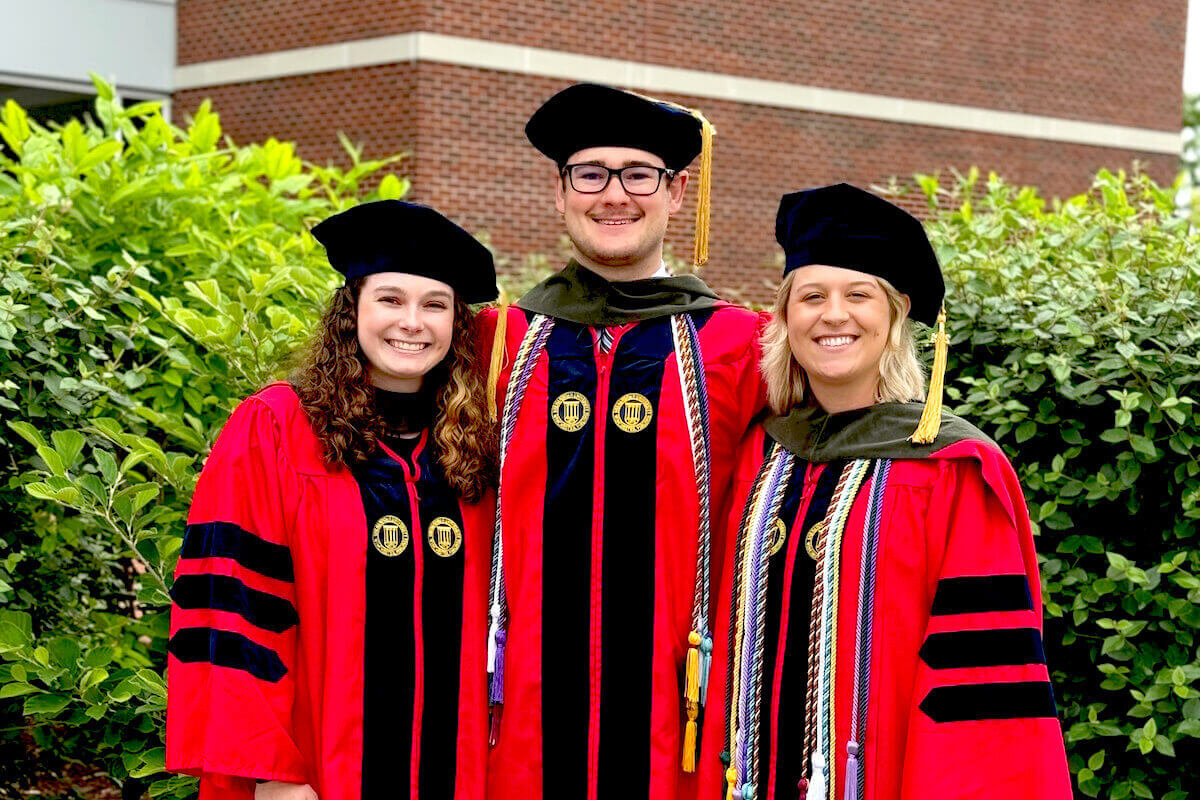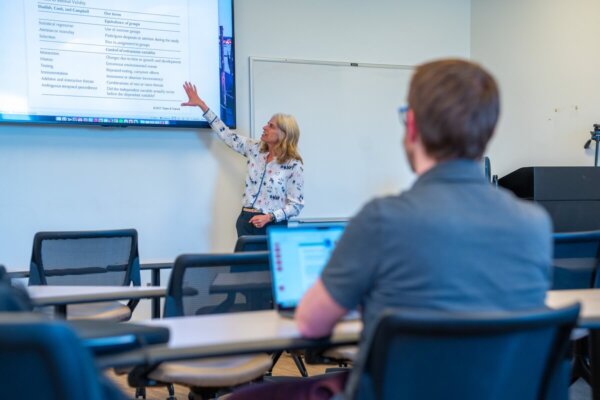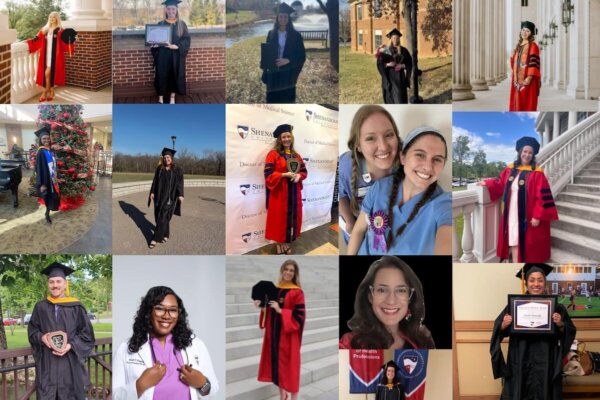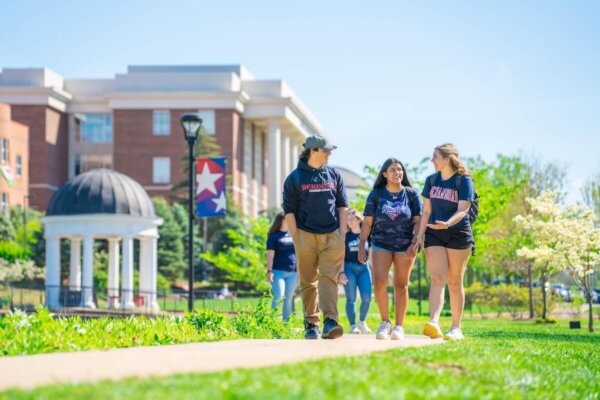Understanding 2025 Economic Trends
Third Annual Economic Summit Offers Perspectives On Local, Regional, And Federal Economic Trends
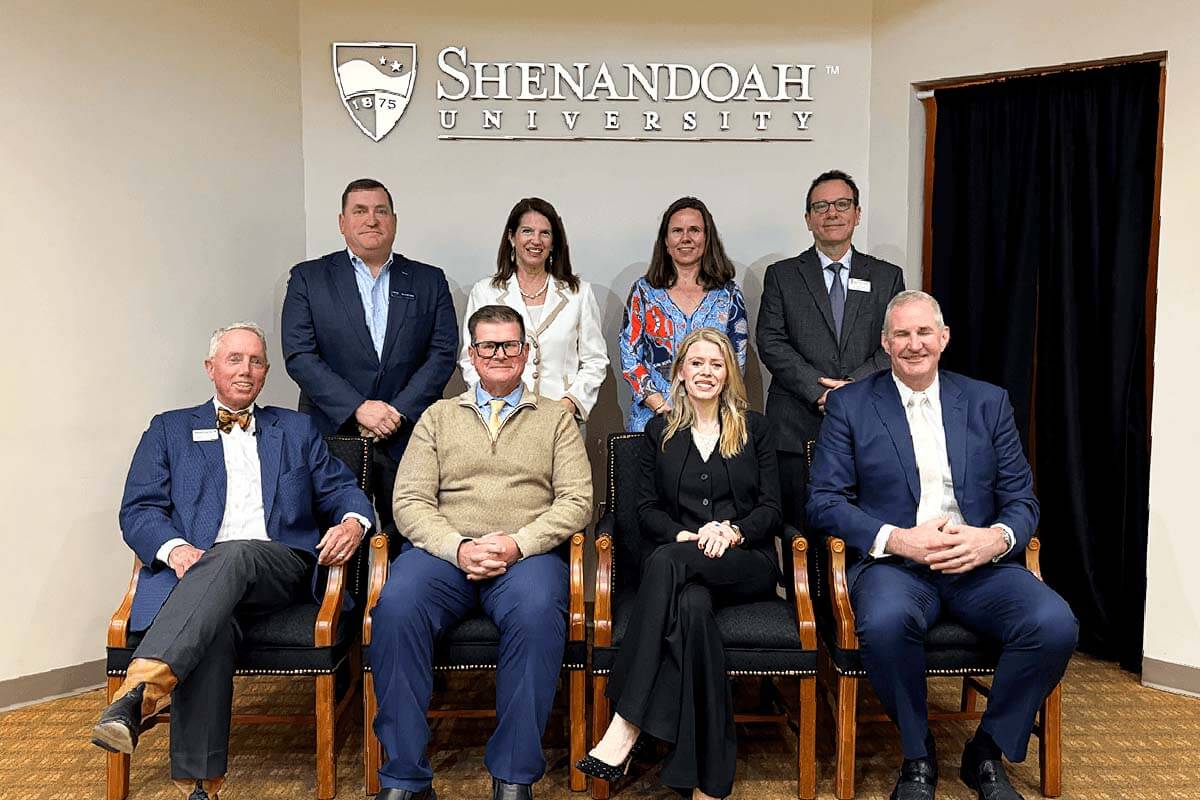

The 2024 Top of Virginia Regional Chamber Economic Summit held at Shenandoah University brought together 285 participants from business, nonprofit, educational, and government sectors on Nov. 14. Presented by First Bank and hosted by the Shenandoah University School of Business, the event provided expert analyses of economic trends at federal, state, and local levels.
The summit featured a lineup of prominent speakers, including:
- Renee Haltom, vice president and regional executive of research communications at the Federal Reserve Bank of Richmond (Richmond Fed)
- Robert M. McNab, Ph.D., professor and chair of the Department of Economics and director of the Dragas Center for Economic Analysis and Policy in the Strome College of Business at Old Dominion University, who provided analysis on regional economic trends.
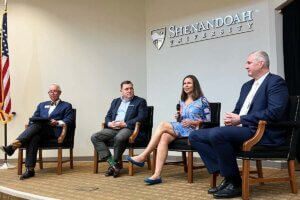
Additionally, the event included a panel discussion moderated by Scott Harvard, president and CEO of First Bank, featuring local business leaders:
- Brandon Lorey, CEO of Bank of Clarke
- Bryan Fairbanks, president & CEO of Trex Company
- Cary Nelson, president of H.N. Funkhouser & Co.
Economic Insights and Post-COVID Dynamics
Haltom’s keynote explored the region’s economic trajectory, drawing on her collaboration with business and community leaders to inform monetary policy and oversee research communications across Virginia.
Haltom reflected on the economic resilience following the COVID-19 pandemic, emphasizing its unexpected outcomes.
Frankly, [from] where we sit today, the economy looks pretty darn good, and that was very unanticipated. A year-and-a-half ago, that was not where anybody expected us to be.”
Renee Haltom, vice president and regional executive of research communications, Federal Reserve Bank of Richmond
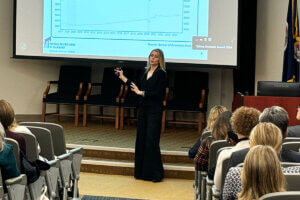
She explained the sharp surge in demand for goods and services during the pandemic, fueled initially by restricted activities and online shopping. This was followed by “revenge spending” as consumers returned enthusiastically to dining out and traveling, resulting in high demand against constrained supply. “On the supply side, you can’t double manufacturing capacity overnight, Haltom noted. “Combine that with supply chain disruptions. In any economic model I know, that’s a recipe for inflation.”
Current Landscape: Optimism With Caution
Despite rapid interest rate hikes by the Federal Reserve to counter inflation — measures often associated with triggering recessions — the economy remains resilient. Haltom attributed this to a stabilizing labor market, and steadily declining inflation, now approaching the Federal Reserve’s 2% target.
Before the election, many businesses and customers held off on major decisions due to uncertainty. While uncertainty remains, attention has shifted to how conditions will evolve. When you don’t have certainty as a business, it’s hard to make big decisions.”
Renee Haltom
Future Outlook: Challenges And Opportunities
 Haltom outlined key economic trends and challenges expected to shape 2025:
Haltom outlined key economic trends and challenges expected to shape 2025:
- Top Concerns: High cost of living, household affordability, and rising debt burdens (Gallup, 2024)
- Consumer Behavior: Growing price sensitivity
- Labor Market: Stabilization
- Sector Growth: Robust in services, weaker in manufacturing
- Inflation: Continued decline toward the 2% target
She also presented two scenarios proposed by Richmond Fed President Tom Barkin:
- Inflation Risk Scenario: Persistent strong demand as businesses and consumers feel confident spending, creating continued inflationary challenges.
- Employment Risk Scenario: Firms, unable to raise prices, may choose to cut costs through layoffs, leading to reduced consumer spending.
External factors, including geopolitical risks, legislative changes, government debt, and unpredictable economic “shocks,” could disrupt further projections. “Most past recessions have stemmed from unforeseen events,” Haltom remarked.
Winchester’s Economic Potential
On the local level, Haltom expressed optimism about Winchester’s economic growth, which is outpacing many other mid-sized cities in the Mid-Atlantic. However, housing supply remains a concern, reflecting national trends.
Housing is more of an economic issue than ever before, and it makes the Fed’s job harder. That’s why we value conversations like these.”
Renee Haltom
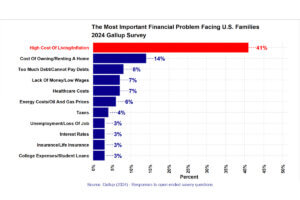
Consumer Sentiment and Inflation
McNab delivered a data-driven analysis of consumer sentiment and inflation. Using various data sources, McNab highlighted factors influencing future economic outcomes:
- Inflation remains the #1 concern for Americans (Gallup, 2024).
- Inflation is expected to moderate (2.4%-2.6%) with declining interest rates in 2025, assuming no significant policy shifts.
- Goods and services inflation has stabilized.
- Policy changes in trade or immigration could reignite inflation or trigger a recession.
- Relocating federal agencies out of Washington, D.C., could negatively impact Virginia’s economy.
- Political dysfunction and geopolitical uncertainty pose risks to growth in 2025.
There’s a huge amount of policy uncertainty for 2025. Forecasting what’s going to happen in 2025, it’s largely guesswork.”
Robert McNab, professor and chair of the Department of Economics and director of the Dragas Center for Economic Analysis and Policy, Strome College of Business, Old Dominion University
Regional Perspectives: Business Leaders Weigh In
Harvard moderated a lively panel discussion addressing regional economic management challenges, including inflation, workforce issues, and budgeting in uncertain times. Panelists shared strategies for navigating these obstacles while planning for future growth.
Other remarks were delivered by Cynthia Schneider, CEO of the Top of Virginia Regional Chamber; Jeff Coker, Ph.D., interim dean of the Shenandoah University School of Business; and Shenandoah University President Tracy Fitzsimmons, Ph.D.
Learn more about the Economic Summit and its speakers at the 2024 Economic Summit Program.
About the Shenandoah University School of Business
The Shenandoah University School of Business combines AACSB International-accredited programs with rich student-life activities, internships, study-abroad opportunities, mentorship and entrepreneurship experiences, leadership opportunities, and fun. Learn more at su.edu/business
